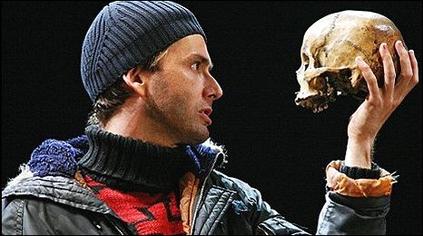
Courtesy of wikipedia.org
I’d been tracking down a friend for several weeks. She answered none of my landline or cell phone messages, nor my emails. Naturally, I was relieved when I received her response, at last. As I feared, the news was bad. She’d been diagnosed with Parkinson’s and was recovering from an unrelated surgery at a care facility.
She is near my age, so I hope the Parkinson’s may progress slowly and that newly developed medication may reduce her discomfort. Nonetheless, she serves as a reminder. If we are lucky, we grow old, but age brings the prospect of death closer. Forced to acknowledge its presence, how shall we live?
Oddly enough, when we contemplate death, our insight improves. We understand what’s important and what isn’t. During the pandemic, I wear a mask. Personal freedom isn’t a concern. The possibility that I might die or I might cause someone else to die takes precedent. My decision is based on science, but it is also a logical conclusion. For anyone killed by the virus, the question of personal freedom becomes moot.
The old are different from the young with good reason. Having slowed down, we see the consequences of our decisions. Death tends to make us honest. It brings another benefit, too. It makes us aware that consciousness, the medium in which we all swim, is a temporary gift. All we imagine, create or choose to destroy stems from consciousness. Within this placenta, societies are born. And within these societies, humans beings define themselves through disparate systems like philosophy, religion, art, and politics.
Ironically, though we use consciousness to create ourselves, the thing itself is unknowable. The reason says Deepak Chopra is that we are a part of it. “A fish cannot know that water is wet because its environment is all water.” Likewise, “humans cannot jump out of consciousness to experience contrast.”
If we imagine sleep is the opposite of consciousness, we are wrong. Lucid dreams inform us that sleep is a different aspect of consciousness, the same way steam, water, and ice are different aspects of H20.
We cannot know consciousness because it is too vast, according to Chopra. All that we can comprehend is our part of the ocean. He calls that place “applied” consciousness. We may be incapable of understanding the whole, but we can apply enough of it to create. That’s how we develop medicine, the internet, computers, and technology, for example. But we can no more create consciousness than a fish can create water though it uses that element to fulfill its needs. That’s why Chopra assures us the quest to build conscious robots is a fool’s errand.
His description of consciousness seems to mirror our understanding of God. Like consciousness, God is both unknowable and knowable. Her existence is vast and yet we make Her personable through our prayers. Is consciousness God? Maybe? I leave the wise to wrangle with that question. A better use of time for most of us would be to contemplate how we wish to experience this fleeting bit of infinity we have captured.
I want to be a good person. By what values should I embrace? So much of what humans create seems a distraction. Politics and religion, for example, are milieus that attract more egos than leaders. Too many of their ilk wish to impose their vision of a better world upon the rest of us and seem willing to use force to do it. They absolve themselves of their crimes because they suppose the end justifies the means. Name any dictator guilty of genocide or priest who put a witch to death on a pyre who has done so without crowning himself with the laurels of good intentions.
Acknowledging death frees the mind. The old and the dying see that arguments about “us” and “them, ”the basis of discord, is an illusion. Walk along a beach and observe how a wave approaches the shore. It rises above its medium as if it were a thing apart. Yet, experience tells us the wave isn’t separate but is integral to the ocean. As it retreats from the shore, we see the foolishness of believing in “us” and “them.”
Knowing that human beings have a natural rhythm too–birth, a moment of consciousness, and death–the ultimate question is how to use the momentary awareness we have received? Will we disrupt or enhance the natural rhythms around us?
Again, the sick and the old have an advantage as they approach the question. Forced to take measured steps, time seems to slow down, giving us more of it in which to think. The phenomenon is a perfect example of Zeno’s Paradox. Because our steps are reduced by half with each advance, we may catch a glimpse of eternity and because of it, dare to contemplate the universe.
The purpose of death is to make us cherish consciousness and force us to consider whether it is better to embrace the harmony of the universe or to work against it. I suspect that choice is all we’ll ever know of life and all we need to know.
